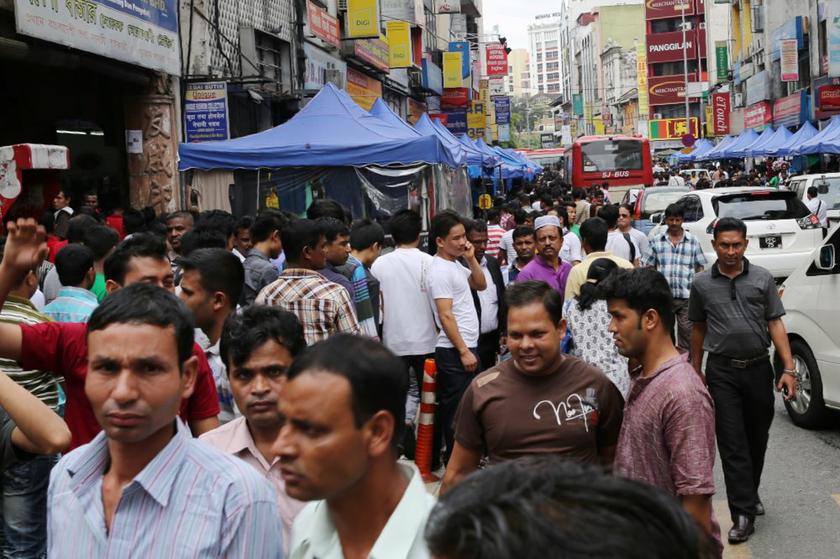PETALING JAYA, Oct 26 — The decision to exclude typhoid from the compulsory screening list of 18 diseases for foreign workers was made by the Health Ministry.
Asked by Malay Mail if the Foreign Workers Medical Examination Monitoring Agency (Fomema) included typhoid in the list of diseases, Unitab Medic Sdn Bhd president Datuk Mohd Hatar Ismail said it was excluded and Fomema was not in a position to add typhoid to the list.
“It is up to the Health Ministry to decide, since it involves additional costs to Fomema panel doctors and panel laboratories.
“Our obligation is to conduct medical examinations on foreign workers based on procedures and guidelines as instructed and approved by the Health Ministry,” he said.
Thirty-two cases of typhoid have been detected in Kuala Lumpur from August to Oct 20.
Titiwangsa recorded 16 cases, with eight cases in Kepong and four each in Lembah Pantai and Cheras.
The Kuala Lumpur Health Department said no fatalities were reported and investigations to determine the source of the disease were ongoing.
National Institute of Occupational Safety and Health (NIOSH) chairman Tan Sri Lee Lam Thye said Fomema did not include typhoid as it is an acute disease unlike chronic diseases like tuberculosis and HIV.
“At the same time, what Fomema is doing is sufficient since it is mandatory for all food handlers, whether local or foreign, to be vaccinated against typhoid.
“Screening for typhoid is not suitable for immigrants because it is tedious and not cost effective. A healthy foreign worker is unlikely to have typhoid as the symptoms will show,” he said.
Malaysian Medical Association president, Dr Ashok Philips said he was aware Fomema did not include typhoid in the screening list.
“This is because the blood test for typhoid would not be accurate since the bacteria is not always detected initially, leading to a series of tests. This will be a waste of time and resources,” he said.
Dr Ashok said vaccinations against typhoid fever are available in clinics and hospitals.
He also advised the public to not take symptoms like fever, diarrhoea and abdominal pain for granted as they may be symptoms of typhoid.
Dr Ashok said the symptoms will show between two weeks of incubation.
“Typhoid can be fatal if left untreated as it can lead to internal bleeding in the digestive system, splitting (perforation) of a section of the digestive system or bowel, which spreads the infection to nearby tissue and infection of the brain,” he said, adding that it will only take a week or two before typhoid fever becomes fatal.
He explained that there is proper treatment for the disease and is effective.
“Generally, a person with typhoid will get better after two to three days after receiving treatment. However, they will be hospitalised and complete their dose of antibiotics.
The common symptoms of typhoid fever are; a high temperature, which can reach up to 39 to 40°Celsius, headaches, muscles ache, stomach pain, loss of appetite, constipation or diarrhoea, a rash made up of small pink spots on the trunk of the body and confusion.



















